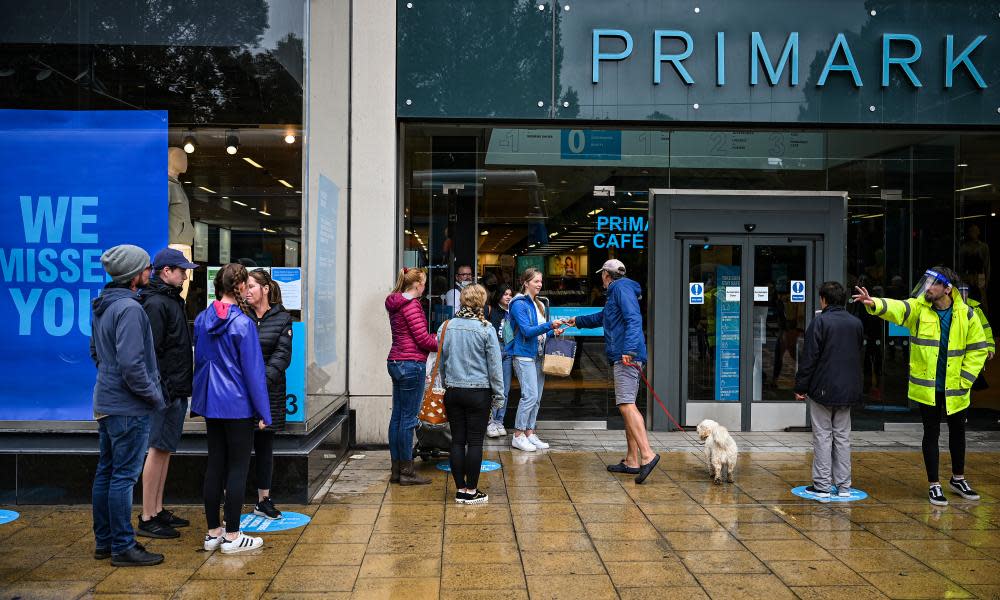Primark loses £800m in Covid-19 lockdowns

Coronavirus lockdowns have cost Primark £800m, with the clothing retailer expecting profits to tumble by two-thirds this financial year.
Revenues fell by 75% between 1 March to 20 June, to £582m, Primark’s owner, the FTSE 100 conglomerate Associated British Foods (ABF), reported on Thursday.
The figures underline the difficulties faced by the retail sector, with companies ranging from Harrods to Primark’s rival Arcadia among the high street retailers announcing more than 6,000 job cuts on Wednesday.
However, ABF said sales had been “reassuring and encouraging” since it started reopening Primark stores.
The company has no online shopping service, so had been particularly badly hit by lockdowns. Sales at city centre stores were still “suffering” from the absence of tourists and commuters.
The retailer has had strong demand for children’s, leisure and nightwear, along with summer products including shorts and T-shirts. Demand for formal menswear and travel-related accessories was “unsurprisingly weak”, ABF said.
It added that – “absent a significant number of further store closures” – Primark’s operating profits, excluding exceptional charges, would be between £300m and £350m for the full year. That would be about a third of the £913m reported in the year to the end of September 2019.
Primark was forced to close its 375 stores within 12 days after 22 March as governments tried to slow the spread of the virus. However, it has since reopened all but seven stores in Scotland and one in the US, with new physical distancing protocols, hand sanitiser, extra cleaning and personal protective equipment for staff.
Sales were down 12% on a like-for-like basis since reopening some shops on 4 May, but ABF said sales in England and Ireland in the week ending 20 June were higher than last year, as non-essential retailers in England were allowed to reopen. Customers had been seen in lengthy queues for entry to Primark stores around the country.
The weakness in Primark sales was balanced by 9% higher revenues in ABF’s grocery business in the quarter. Revenues also rose in ABF’s food ingredients business.

 Yahoo News
Yahoo News 
